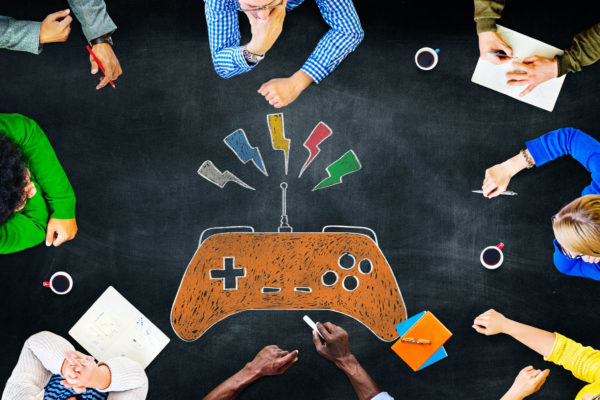
The best way to get the attention of a child is through deep interaction, and what better way to get their full attention than involving them in a game. An educational game will be best suited for kids especially those between 3-7 years.
Before anyone rushes off to try and develop an educational game there are a few things worth knowing.
Understand why you’re building a game

A game, no matter how well it’s designed, is never going to replace the set curriculum. Classroom teaching is about the transfer of explicit knowledge.
Games, by contrast, are about teaching skills in an implicit way, making kids more engaged, and more able to understand their skills and limitations, rather than just recalling knowledge.
Importantly, they also give kids a sense of agency and a safe space to fail.
Those principles should guide you through every aspect of the game’s design, development, and distribution.
It’s okay to start by developing for where the market is going

Often the newest technologies, such as VR and AR, aren’t widely available in the schools that need educational games the most. This doesn’t mean that you should ignore these platforms.
You can start by distributing and testing a game at the upper end of the market first. Once you can prove that your game has educational value then you can use those results to seek funding to distribute the necessary hardware it requires.
It also pays to anticipate which platforms will naturally become more cost-effective and widespread as time progresses.
Smartphones are an example of where a formerly high-end technology has become widespread. And as data becomes cheaper and Wi-Fi more freely available, the case for developing games at the mass educational market becomes more powerful.
Mobile technology has transformed the way we live and work, and it can be expected to rapidly change the ways in which children learn as smartphones and tablets become more widely accepted at primary and high schools…
Allow for linguistic and cultural differences

This should go without saying, especially in South Africa.
There’s an overwhelming body of evidence showing that people learn better in their home languages. If you’re not making allowances for learners to interact with your game in a language they’re familiar with, they’re never going to get as much out of it as they should.
Games can also cut across cultures because they can use visuals cleverly to be more universal.
Work closely with the experts

While you might have some expertise in the subject area your game deals with (maths or financial literacy, for instance), chances are you don’t have the same level of expertise when it comes to practical education or psychology.
It’s therefore vital that you engage with teachers and educational psychologists to ensure that your game achieves the desired outcome.
Working closely with experts will also help you refine your testing and the measurements of your game’s effectiveness, ensuring that you build a viable product in the long term.
Lots of people play games and think that they can design a game – make sure that you work with a company that has a proven track record of designing and building effective educational games.
Children are wise to anything that’s meant to be deliberately educational and may well baulk at it.
Learn from existing games

When it comes to building an educational game, it’s worth understanding what kids find so appealing about the games they already play.
Include these mechanics and factors, and learners are much more likely to engage with your game.
It’s also worth looking at how existing games are used in the classroom. Assassin’s Creed, for example, is being used to teach students about history. Plenty of teachers have also found innovative ways of baking Minecraft into their lessons.
If you understand why this works, you’ll be in a much better position to build your own game.
Getting games right
Educational games certainly have a positive role to play in South Africa. Implemented properly, and backed up by the right research, they can be useful ways to supplement the curriculum. Anyone rolling out a game needs to be aware of the specific challenges South African learners and educators face every day. If they fail to take these things into account, they not only risk their game failing but also doing damage to learners in vulnerablesituations.